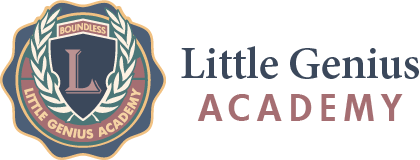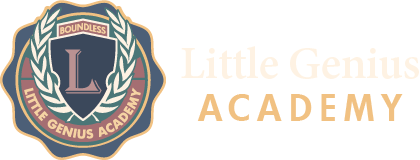Tailor learning to individual needs
Little Genius has developed its own strategy to implement The Early Years Learning Framework – Belonging – Being – Becoming in our curriculum, built around learning activities in specific content areas such as “Mathematical Thinking”, “Literary Thinking”, “Scientific/Nature Thinking” and the Arts.
We believe that children are inherently curious, creative and capable of constructing their own ideas and interests of the world through imaginative experiences and expressions in visual, verbal, written and varied forms.
We believe that opportunities for learning development through holistic education should be made available to all children with any beliefs and cultural backgrounds.
We believe that children are meaningful in their own learning journeys. Children’s own ideas and interests are always encountered which their autonomy, individuality and originality are to be respected. Children’s literacy is the best developed when creative mindset is supported by open wider learning experiences.
Children's flexible daily routine
7.30am | Parent/ career drop off. Greeting friends and put away personal belongings. |
8.00am | Hand washing/ Breakfast with food songs & rhymes. |
8.30am | Outdoor spontaneous and motor skill planned activities. |
9.00am | Toilet checks, nappy change and hand washing. |
9.30am | Intentional teaching activity/ reflections and follow ups. |
10.30am | Pack away, music and movement (outdoor) |
11.00am | Wash hands, get bibs and settle on the dinner table with friends. Eat food, communication/ song time. |
11.45am | Clean faces/hands. Toilet checks and nappy change. |
12.00pm | Nap time/ quite reading in beds. |
2.00pm | Hand washing and toilet checks/ nappy changes. |
2.30pm | Afternoon tea time/ story time with friends. |
3.00pm | Outdoor play/ gross motor activities |
4.00pm | Group activities |
5.00pm | Prepare for parents; collect things, children’s choice of activity/ free play. |
6.00pm | End of day |


